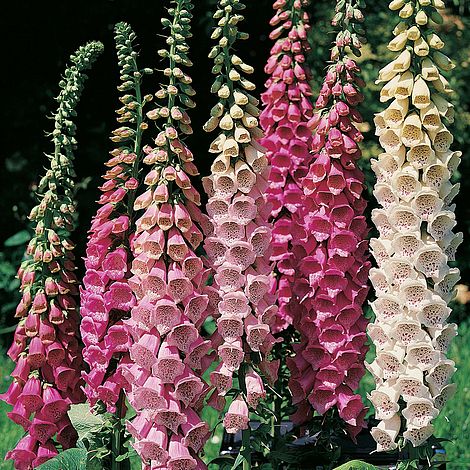Annies Home a place where I love to share tips, recipes and wonderful products that I find for our family along the way.

Custom Search
Sunday, May 13, 2018
Tips for growing Foxglove
Foxglove is a beautiful plant that grows throughout the U.S. It can grow in the wild and is often cultivated in private gardens as well. The beauty of the bell-shaped flowers are hues of bright colors and normally bloom in the spring. Foxglove also produces a dry fruit that contains many seeds. The flowers and the berries because of its beauty are very attractive.
Foxgloves are big, beautiful, flowering plants that tolerate shade well. They also grow well in containers Foxgloves can grow as tall as 5 foot and a foot wide. Foxgloves are biennials and do not bloom until the second year of growth. Foxglove plants die after blooming. The plants do drop plenty of seeds that promise new plants the following year.
Foxglove grows best in shady areas. The plants should be fertilized once a month to maintain the sil that is needed to encourage growth. The soil where the foxglove is planted should be well drained, a lot of excess water is not needed but a regular watering is needed during times o the year when rainfall is minimized.
Foxglove plants should not be placed closely together as they grow quickly. The plants should be 18 inches apart and if the plants begin to overwhelm each other they may need separated. Foxglove stalks tend to be very long and may easily break and bend in the wind. The stalks may need to be stabilized to support their weight.
Foxglove is an extremely poisonous plant. Foxglove is known as Digitalis purpurea in the botanical world. A common heart medicine is also known as "digitalis" and is derived from the plant. When foxglove is made into medication digitalis is valuable in treating heart failure and can help a weak heart pump harder. Those who accidentally ingest the foxglove plant take a unregulated dose of heart medicine. The heart rate can slow down or become irregular which is dangerous and can be life threatening. If anyone does consume any part of the foxglove plant do not induce vomiting. You should immediately call the Poison Control at 1-800-222-1222
Subscribe to:
Post Comments (Atom)


No comments:
Post a Comment
I love comments so if you have a minute leave me your thoughts on the above post